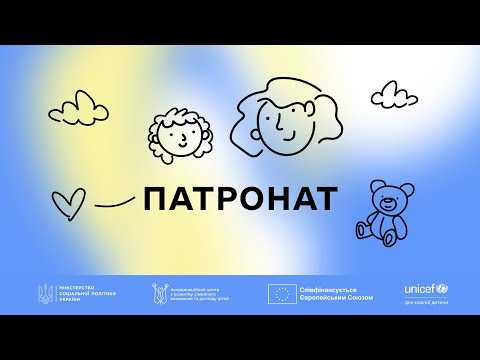About the patronage
About the patronage
Providing patronage (short-term and emergency foster care or patronage) to children is an important step in preventing the placement of children in institutions. When each community has a patronage family, we will be able to provide family-based care to children who have been withdrawn from their biological families rather than placing them in institutional care.
Patronage provides children with a safe, loving family environment that gives them the opportunity to develop. Encouraging the provision of patronage as a standard will enable our society to replace institutional care with the integral support of family ties. It is one of the best options for the children’s welfare when staying with the biological family is not possible.

Key facts
Patronage — significance for the child: care, upbringing and rehabilitation of the child within a family
Patronage — significance for biological parents: an opportunity to overcome difficult life circumstances while a child is in a family environment of professional carers
Patronage — significance for foster carers: professional employment in the social sphere of their community, with guaranteed state funding
Patronage — significance for the community: an opportunity to protect children and their prosperous future in their community
Patronage — significance for the country: developing patronage is an important step to prevent placing children separated from their parents in institutional care
Children who benefit: children in difficult life circumstances
Co-residence: children reside with the foster carer’s family on a temporary basis
Period: three to six months (during martial law, the child can remain with the foster carer’s family until one month after martial law is lifted).
Patronage of a child means temporary care, upbringing and rehabilitation of a child in the foster carer’s family while the child, their parents or other legal representatives overcome difficult life circumstances. Foster carers host the child in difficult life circumstances in their family on a temporary basis, provide care for, raise and rehabilitate them. At the same time, professionals provide an intensive package of services to the children’s parents to resolve the problems that caused their separation from the child.
The foster carer’s family is the family where, with the consent of all the members, the adult who has completed training to become a foster carer, acts as a foster carer on a professional basis.
The foster carer is the person who provides the services of care, upbringing and rehabilitation of a child within their family, with the participation of other family members.
Foster carers create a safe environment that supports the child temporarily separated from their biological family. A permanent solution must be found for the child: return to their biological family or adoption.
Foster carers are the best alternative to institutions (in case guardianship or temporary kinship is not available). Even a short stay in an institution can leave deep wounds in the child’s soul, and expose the child to psychological, physical and even worse forms of violence.

Foster care of children is an important step on the path to prevention of children’s placement into institutions. When each community has its foster family, we will be able to provide the children withdrawn from their biological families family care instead of the institutional one.
Foster care is in the child’s interests, and facilitates creation of the safe and loving environment where every child has an opportunity to develop and feel care. Development of foster care as a standard will enable the society to replace integral support of family ties with institutional care with more confidence. It is the best option for the children’s welfare.

Who can be a foster carer:
- The full-aged legally capable person who wishes to perform duties of the foster carer on a professional basis and

Who may not be a foster carer candidate:
- persons who are raising their own children under the age of three, a child with disabilities who has impairments, or a child who has a serious illness;
- those already a guardian, a custodian, an adoptive parent or a caregiving parent;
- those with limited legal capacity;

Children eligible for foster carer
Children in difficult life circumstances who have, or might have, a negative impact on their life, health and development can be placed into the family of the foster carer; in particular, they are children:
- who have been deprived of parental care, including those placed in healthcare institutions, the children’s social and mental rehabilitation centre, or an institutional care and education facility for children;

Care line
How can you welcome a child into your family?
— Write to find out more!
If you have additional questions, our experts can help you develop a better understanding of the adoption procedure, and of family-based care of children.
